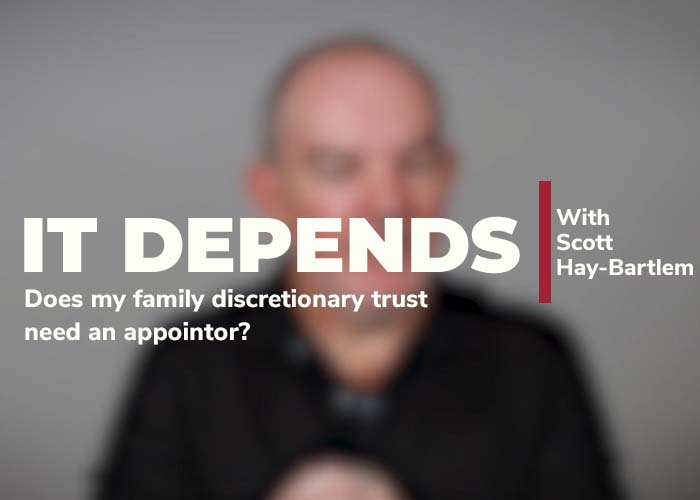An enduring power of attorney is a legal document that allows someone to make decisions on your behalf. It continues even if you lose capacity to make decisions and cannot give instructions to your attorney.
You can appoint an attorney for financial, personal and health matters.
You can have a different person or people as the financial attorney and personal/health attorney.
Commencement of the power of attorney
You can specify that your attorney’s powers in relation to financial matters begins immediately (the date you sign the document) or commences on a date specified by you or on a specified occasion, such as when you actually lose capacity.
This is an important decision from a practical point of view. If the power only commences on loss of capacity, then the attorney cannot act until they have evidence (for example, a letter) from a medical practitioner stating that you have lost capacity. This means the enduring power of attorney will not be effective if you want your attorneys to act while you still have capacity but may not wish to deal with certain transactions or you cannot physically attend to implementing your decision (for example, you are overseas on holiday).
Your attorney’s powers in relation to personal and general health care matters can only begin once you have lost capacity.
Financial matters
Examples of financial matters include:
- deciding how your income should be invested
- selling any of your assets
- paying your debts
- paying maintenance and accommodation expenses for you.
Personal and health matters
Examples of personal or health matters include:
- decisions about where and with whom you live
- whether you work or undertake education or training
- day-to-day issues, like diet and dress
- whether to consent, refuse to consent or withdraw consent to particular types of health care for you (such as an operation)
- consent to the withdrawing or withholding of life-sustaining medical treatment if, for instance, you become terminally ill or are in a state of permanent or persistent unconsciousness.
Why it is important for every SMSF member to have an enduring power of attorney
If a member becomes incapacitated, then, practically, they can no longer be a trustee or director of a trustee company. This means that the fund can no longer satisfy the member and trustee rules found in section 17A of the Superannuation Industry (Supervision) Act 1993. The practical effect of this is the member must leave the fund and must take their benefit as a lump sum, appoint an approved trustee or roll to a retail fund.
If a member has appointed an attorney under an enduring power of attorney, then the attorney can become the trustee or director of the trustee company in the place of the member. This allows the trusteeship to be restructured with the attorney replacing the member and the member to remain in the fund.
What happens if you do not have an attorney to act for you?
Depending on your individual circumstances, the problems could be far-reaching if you are injured or become ill and do not have the capacity to make your own decisions. Personal and health matters can often be dealt with on an informal basis. Financial matters may be dealt with on an informal basis in some limited cases. However, if you do not have an enduring power of attorney and formal authority is needed for a transaction, or if disagreements between family members arise, the Queensland Civil and Administration Tribunal decides who will act for you. They will appoint an administrator for your financial affairs and a guardian for your personal and health affairs. By making an enduring power of attorney you choose a known, trusted person to administer your financial, personal and health affairs for you.
Conclusion
Having an up to date enduring power of attorney is extremely important for everyone, and especially people who are members of an SMSF.






